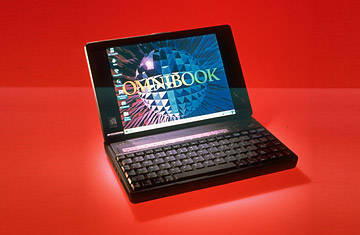
An HP Omnibook, circa 1997. The Omnibook line lasted from 1993 until HP bought Compaq in 2002
On Aug. 12, the IBM PC — the classic machine from which all modern Windows computers descend — turned 30. IBM's Mark Dean, who helped engineer the original PC, commemorated the anniversary by congratulating his company for having abandoned the PC business back in 2005. He declared that we live in a "post-PC era" and said his main machine now is a tablet. Some celebration!
Less than a week later, HP — today's biggest PC brand — had some news of its own. CEO Léo Apotheker announced that the company was thinking about spinning off or selling its PC group, and decided to kill its TouchPad tablet after only six weeks on the market. "Is the personal computer dead? HP, the largest PC maker, thinks so," read the headline on one story about HP's bombshell. (The company later put up a confusing website claiming that its PC business's future was brighter than ever.)
With all this gloom in the air, you couldn't blame Microsoft p.r. honcho Frank Shaw for getting a tad defensive. In his understandably Windows-centric worldview, PCs still do many things that tablets (and smart phones) can't do, making the latter devices "companions" to Windows boxes. He argued that we now find ourselves in a "PC-plus" era, not a post-PC one.
Declaring the PC to be toast is indeed a bizarre overreaction — one that says more about tech pundits' eternal love of knee-jerk hyperbole than anything else. Research firm IDC estimates that 361.5 million PCs will sell worldwide this year and that the number will increase to 541.5 million in 2015. That may not be heady growth, but it's also not rigor mortis. (By contrast, another firm, iSuppli, says 60 million tablets will sell this year and that it expects 275.3 million of them to sell in 2015.)
As for HP's dramatic move, the company seemed to think it was reacting to some sort of sea change. CEO Apotheker kept referring to a "tablet effect" that had impacted the PC business and caused HP to reconsider its commitment to it. No elaboration on his part was required: it was obvious that he was talking about Apple's iPad and saying that its massive success was hurting sales of traditional PCs.
The thing is, the notion of HP ditching PCs isn't a visionary reaction to the latest developments in the industry. Analysts have been suggesting that HP do something like this since ... well, at least since 2001. That's when HP was attempting to acquire Compaq, and Forbes' Dan Ackman noted that "some analysts have suggested HP exit the money-losing PC business altogether."
